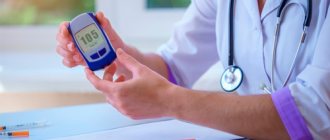Home>Articles>Alcoholic depression: symptoms and treatment
quick menu (hide)
- How does alcohol depression begin?
- Symptoms and varieties
- Mild course
- Depression after binge drinking
- Treatment
- Prevention of alcoholic depression
Alcohol abuse rarely goes away without leaving a trace. Any organs and systems can suffer from a bad habit. And among other things, alcohol leaves its mark on the psyche. Alcoholic depression often accompanies an addicted person. This condition requires special attention . How to get out of alcoholic depression, and how to understand that an alcohol addict is on the verge of this disorder?
Many people consider alcoholic drinks as a kind of antidepressant. After all, they allow you to relax and forget about problems. But don't be fooled. Any specialist will tell you that alcohol is not an antidepressant, it has the opposite effect. And it doesn't solve any problems. On the contrary, it often becomes the cause of severe depression, most often of the bipolar type. In practice there are indeed very often cases when a person seeks salvation from negativity at the bottom of the bottle, and then does not know how to get rid of alcoholic depression.
How does alcohol depression begin?
Considering such a broad topic as alcoholic depression, symptoms and treatment, it is necessary to study the algorithm for the formation of this condition. Thus, human emotions are formed by neurotransmitters. Their task is to transmit nerve impulses. Ethyl alcohol causes a decrease in con-serotonin, and this leads to worsening mood and gradual mental changes, including depression .
Alcohol consumption also leads to excessive production of norepinephrine, which is called the “rage hormone.” Therefore, excessive activity and energy surge arise. But as soon as alcohol intake stops, levels of this substance in the body drop. This leads to apathy and lethargy, which can also stimulate the onset of depression. Alcohol is processed by the body quickly enough, but toxic compounds remain in the body for a long time, continuing their effect.
Any alcoholic beverage can cause depression, any doctor will tell you this. Alcohol gives a short period of euphoria, and then for a long time provokes the opposite effect. Practice shows that alcoholism goes hand in hand with depression, anxiety, and manic disorders. Moreover, the longer the experience of alcoholism, the greater the likelihood of depression and other related disorders . Statistics show that alcoholic depression occurs more often after the age of 35, among experienced alcoholics. It can take severe forms and be accompanied by suicidal thoughts and actions.
Symptoms and signs of alcoholic depression
Post-alcohol affective disorder is a complication of alcoholism that occurs in 80-90% of alcoholics. The more he drank, the brighter, longer and more painful the manifestations. The chronic form of addiction is accompanied by a pronounced depressive syndrome, and the mild form is accompanied by short-term but painful symptoms.
- feelings of “flatness”, indifference to life;
- insomnia, drowsiness, muscle weakness;
- causeless internal anxiety and mood swings;
- slowness of reactions, deterioration of thinking;
- experienced self-hatred, feelings of inferiority and negative thoughts that incite suicide;
- alienation from the environment, psychological closeness from the outside world.
All of the above is combined with physiological disorders: deviations in eating behavior, decreased libido, dysfunction of the gastrointestinal tract and changes in the functioning of the cardiovascular system.
Alcohol depression, symptoms and types
When it comes to a disorder like alcoholic depression, the symptoms can be very characteristic. So, among the most noticeable and frequent manifestations:
- Socially unacceptable and dangerous behavior;
- Increased injury rate;
- Suicidal thoughts and actions;
- Development of encephalopathy;
- Personality degradation;
- Epileptic psychosis as a consequence.
In practice, post-alcohol depression can occur in two ways. There are cases of short-term course after one-time cases of excessive drinking. There may also be a severe disorder , which usually occurs after heavy drinking. In the first case, everything goes away on its own, and quite quickly. The second case is characterized by long-term disorders with severe manifestations. The person may need medical help.
Root Cause Options
Option 1: Depression is the cause of alcoholism. On the one hand, attempts to drown out depression, which brings unbearable emotional experiences, with alcohol lead to the formation of addiction. It is widely known that alcohol dependence is often formed against the background of mental illnesses, the core of which is the pathology of affect. These can be depressive, bipolar disorder, cyclothymia.
Alcoholism is often disguised as a depressive disorder. Statistically, this is observed more often in men who use alcoholic drinks as an “antidepressant.” Unfortunately, this “method” is very unreliable and dangerous: no one can say exactly what dosage is enough not to cause addiction and to get any positive effect. Naturally, there is nothing positive in such attempts to cure depression. Mood swings that are observed as the degree of alcohol intoxication changes (from euphoria during a drunken state to extreme depression during a hangover) are already dangerous in themselves. It is also unnecessary to talk about the negative impact on the physical condition of all systems and organs, as well as human degradation.
Option 2. Alcoholism is a cause of depression. In turn, the addiction itself can cause the onset of a depressive disorder. Naturally, the presence of depression significantly complicates the process of treating alcoholism, requiring an integrated approach and significantly increasing the degree of financial costs.
Mild alcoholic depression, symptoms and treatment
After drinking too much, depression occurs along with withdrawal symptoms. There are physiological signs of a hangover , and emotional depression and bad mood are also felt. A person may load himself with guilt due to an episode of drunkenness, experience remorse, and remorse. Nervousness can occur against the background of potassium deficiency and other physiological processes characteristic of the body after alcohol stress.
These short-term disorders are characterized by a persistent genetic dependence . There are people who never encounter such manifestations in their lives. For others, on the contrary, the problem occurs frequently. This is due to alcohol hydrogenase and its production by the body.
Usually in such situations the question of how to cope with alcoholic depression does not arise urgently. It goes away on its own; for some, it goes away within a few hours. Sometimes the problem lasts for several days , but still goes away on its own over time.
Diagnosis and treatment of alcoholic depression
Only a specialist can make a diagnosis of post-alcohol psychological disorders based on differentiation with other types of depressive syndromes that have similar clinical signs. To confirm the diagnosis, the doctor analyzes the patient’s complaints and conducts a physical examination. Only after clarifying the nature of the pathological process will a specialist be able to decide how to cope with alcoholic depression in a specific clinical case and select an appropriate treatment plan.
The main difficulty when choosing a therapeutic regimen is the inadequate attitude of most patients to their condition. They do not want to realize that it was not depression that caused the binge, but, on the contrary, excessive consumption of strong drinks provoked the development of depressive syndrome. Relatives of drinkers should know: if a person who drinks frequently and heavily has alcoholic depression, treatment should be comprehensive and carried out in a drug treatment clinic. Most often, the following methods of therapy are used to eliminate post-alcohol depression:
- Medication. Patients are prescribed pharmacological drugs belonging to the drug groups of antidepressants, tranquilizers and hypnotics. At the same time, detoxification therapy is carried out to relieve signs of withdrawal syndrome.
- Psychotherapy sessions. They are necessary to consolidate the effect achieved by using medications. Thanks to group or individual psychotherapeutic sessions, it is possible to finally solve the problem of alcoholism and teach a person to enjoy life again.
- Physiotherapy. Physiotherapeutic procedures show high effectiveness in the treatment of post-alcohol depressive syndrome. The most effective, in the mutual opinion of narcologists, are artificial sleep, electrical stimulation, and acupuncture. These procedures harmoniously complement treatment with pharmaceutical drugs and accelerate the patient’s recovery from a depressive state caused by prolonged alcohol consumption.
The best option for ridding a person of a pathological condition is inpatient treatment under the constant supervision of doctors and medical personnel. But the patient himself must decide to begin treatment and be confident in its success. Only then will he be able to get rid of alcohol addiction.
Depression after binge drinking
The second case is more serious. There may be a complex disorder that requires complex treatment and the help of specialists. After long binges, this state occurs 2-5 days after the cessation of drinking, and marks the beginning of withdrawal syndrome . This begins to appear at stages 2-3 of alcoholism.
The deterioration of the mental state occurs simultaneously with physiological symptoms. Tremors, convulsions, and other symptoms characteristic of withdrawal occur. Alcoholic depression is growing, the treatment of which will be required. It can be expressed by strong negative experiences , crisis and lack of purpose in life, lack of understanding of one’s own importance. This type of depression forces a person to see the world in dark colors, to feel complete powerlessness and despair. All this answers the question of why alcoholics may commit suicide during abstinence.
Depression of this kind should not be looked upon with disdain. They pose a hidden threat to humans. And it’s not just a matter of suicidal risk, although this cannot be ignored . So, after a binge, a person can look quite well and return to work and normal everyday life. However, inside he will be filled with negativity, will see the world in dark colors and will look for a substitute for alcohol that will bring colors back to life. Of course, the new way of experiencing joy may be even more detrimental. Gambling, drugs, promiscuous sex life, and dangerous behavior can be chosen as a substitute. Some people tend to “go to work” at such moments and get chronic fatigue syndrome. the help of competent specialists can eliminate such consequences .
Types of depression after alcohol
Depression from alcohol use is divided into two types according to the situation after which it occurs.
- A short-term depressive disorder resulting from intoxication by drinking too much alcohol.
- Severe form of depression as a result of heavy drinking.
First outcome
The first outcome occurs after excessive drinking of strong drinks. The form of such depression is mild, it is one of the symptoms of a hangover. The person’s state is depressed; he no longer wants to have fun like the day before. There may also be a feeling of guilt for overdoing these drinks.
Photo by Ethan Sykes on Unsplash
Fatigue, melancholy, weakness in the body and difficulty concentrating are caused by a lack of glucose in the blood, provoked by the breakdown reactions of ethyl alcohol. For the same reason, sometimes anxiety and irritability are added to the apathetic state. Nervousness is caused by a deficiency of magnesium, which the body eliminates along with toxic substances when trying to get rid of them.
There are categories of people who never develop post-alcohol depression. And there are those for whom it comes as an integral part of every hangover. And this does not depend on the amount of alcohol consumed or its strength.
The genetic aspect plays an important role here. The fact is that for some people, nature provides for the rapid decomposition of ethyl alcohol and acetaldehyde. It is the fact that this process occurs in the body that makes some people resistant to depression after partying. This condition generally goes away on its own within a few days and no special treatment is required.
Second outcome
The second version of the depressive state appears when a binge alcoholic refuses to drink alcohol. This is called withdrawal syndrome. The mechanism of its appearance is the same when giving up any bad habit: smoking, drinking alcohol or drugs, gambling addiction, and so on on the list. This condition requires mandatory observation by a specialist and timely assistance.
Photo by thom masat on Unsplash
Depression appears within two to five days from the moment the binge stops. At the same time, tremors, convulsions, and hyperactivity of the nervous system appear. When binge-drinking, the alcoholic experienced a state of euphoria and relaxation from drinking alcohol.
If you refuse this, a crisis begins in the body, the pleasure center in the brain demands its toll and signals with such symptoms that it feels bad without alcohol. He wants to experience the pleasure of drinking strong drinks again. In such a state, it seems to a person that he has lost the meaning of life, there is no goal for which it is worth living. Suicidal thoughts appear. The world around seems gray and dull, feelings of worthlessness and uselessness appear.
Depression after heavy drinking is a dangerous condition. In extremely rare cases, it goes away on its own without consequences. Often, in an attempt to replace alcohol with something, a person begins to use drugs or replaces the craving for alcohol with other bad habits. Some people get involved in dangerous sports because the adrenaline rush helps them temporarily distract from cravings for substances that are hazardous to their health.
Alcohol depression - symptoms
Post-alcohol depression can vary in duration. Episodes stretch over a period from a day to a year, everything is very individual. The condition is fraught with relapses , often approaching manic-depressive psychosis. Symptoms associated with substance use disorders include:
- Insomnia or drowsiness.
- Cognitive problems.
- Decreased social activity
- Mood swings.
- General lethargy, which can be replaced by pathological activity.
- Gastrointestinal problems.
- Decreased appetite or gluttony.
- Increased causeless anxiety.
- Feeling of worthlessness.
- Attempts to escape from reality, even to the point of suicide.
- Unreasonable attacks of irritation and anger.
- The choice in favor of isolation from society, a secluded lifestyle.
- Lack of interest in everything.
- Lack of sexual interest and activity.
- Inability to do usual activities and work.
Can alcohol make depression worse?
The nature of social interaction often determines the level of risk of developing chronic reactions. If depression is burdened by habit, then doctors have to solve problems in a complex manner. In addition to problems of physical well-being, difficulties caused by changes in behavior patterns are aggravated. According to scientists who practice cognitive psychotherapy, illness is provoked by beliefs formed in childhood. They intensify when exposed to certain circumstances in adulthood.
According to this theory, everyone faces the “cognitive triad”: a low understanding of oneself, the environment and one’s own future. Alcohol creates fertile ground for the further development of these ideas. A person quarrels with loved ones, he is fired from his job, and he may completely lose faith in the future.
Such changes cause pain to relatives and friends. During periods of sobriety, the drinker is acutely aware of his problems and inferiority. Drunkenness can be accompanied by repeated unsuccessful attempts to recover from the addiction. A person who drinks, but has not lost the remnants of his humanity, may have a hard time worrying about the consequences, gradually plunging into spiritual darkness and despondency.
Unfortunately, new milliliters of the life-saving remedy do not have such a beneficial effect as at the very beginning. An additional portion acts like a catalyst: it pushes you to the edge of an invisible abyss, and in some cases leads to death. There are sad statistics that confirm that the success of healing depends on how timely assistance is provided. The natural result of a negligent attitude towards oneself and one’s neighbor is death caused by suicide or the final destruction of the body. Addicts often die as a result of an accident, since their instinct of self-preservation is dulled, desires and motivation are lost. Their hygiene skills decrease, they are distracted in everyday life and risk getting into an unpleasant situation on the street.
Getting out of this is not an easy task and requires an integrated approach. If a health course is prescribed at an early stage, when there are no complications yet, then it will be successful. With prolonged periods, you will have to deal with both a complicated course and accompanying dependencies.
The reactive course is observed in chronicles; it is provoked by severe psychotrauma experienced. In mature patients, everything occurs against the background of manic-depressive psychosis. In such difficult cases, hospitalization and observation by medical personnel are recommended. Success depends on the joint coordinated actions of doctors and the victim’s relatives, who are considered codependent and suffer no less. Don't be indifferent. Careful attitude can save a person's life. At the first alarm bells, you need to sound the alarm and seek help.
Author of the article: Yakovlev Evgeniy Anatolyevich
Narcologist, Candidate of Medical Sciences.
Alcohol depression, treatment
Speaking about the problems of treating these conditions, it is worth noting the most difficult moment. For the most part, people susceptible to alcoholism do not consider their depression to be related to alcoholism. Meanwhile, it is the toxic effects of alcohol that give rise to depression, especially in the case of sudden withdrawal from binge drinking. Therefore, it is worth noting that the treatment of depression of this kind should begin with the treatment of alcoholism as the root cause of their occurrence.
Full awareness of the problem significantly helps in combating it. Understanding that after giving up alcohol, depression will begin along with withdrawal, a person will be ready for it and will be able to overcome it. Also, if necessary, you can seek help from psychologists and psychiatrists at rehabilitation centers and assistance centers. Existing social adaptation programs are excellent at helping to cope with such problems.
Mild forms of post-alcohol disorders usually go away on their own, and the help of doctors is rarely required. If we talk about problems of moderate severity, a little help may be needed here, and in the vast majority of cases it ensures success. However, severe disorder following binge drinking requires professional management, since it is a complex and responsible process. Modern experts point out the advisability of an individual approach, choosing complex treatment. It includes psychotherapy, procedures and medications.
Main causes of depression
The emotional state of a person depends on the concentration of neurotransmitters - these are biologically active substances that ensure the transmission of nerve impulses. Under the toxic effects of ethanol assimilation products, a deficiency of serotonin , which is called the “hormone of happiness.” The serotonin system of the brain has an inhibitory effect, which is opposed by the dopamine system, which activates nerve impulses.
The main effect of alcohol on neurotransmitters is an artificial feeling of pleasure , relaxation, which is then “compensated” by anxiety, anxiety and other disorders.
In addition, when ethanol enters the body, the amount of biogenic amine, norepinephrine, which is called the “hormone of aggression,” increases. With a sharp decrease in its concentration, a person feels a sharp surge of energy, and then apathy, depression, muscle weakness, and lack of energy.
Next, it should be noted the general toxic effect of ethanol alcohol metabolites on the body. Even after the binge stops, the toxic waste from the “alcohol plant” in the digestive system circulates in the blood for a long time and affects the brain. Insufficient nutrition and blood supply to the cerebral cortex leads to the death of neurons and disruption of reflex-motor reactions.
Reactions during the breakdown of ethanol cause hypoglycemia, a decrease in blood glucose levels. This results in fatigue, a sad mood, and a helpless state. Magnesium deficiency and subsequent blocking of calcium channels provokes nervousness, tachycardia, and rapid heartbeat.
The symptoms and treatment of alcoholic depression are studied by narcologists, psychiatrists, and psychotherapists. They name the following causes of depression :
- metabolic disorders , effects of ethyl alcohol metabolites on the cardiovascular and central nervous system;
- consequences of withdrawal syndrome;
- changes in the response of brain receptors;
- psychosomatic disorders;
- destruction of the mental structure of the individual;
- related social and everyday problems .
How to get out of alcoholic depression - with prolonged abstinence from alcoholic beverages for more than 2-3 months, the signs of a depressive state almost disappear . Chronic alcohol consumption requires the intervention of specialized specialists.
The longer the “alcohol experience”, the greater the likelihood of post-alcohol depression, alcohol psychosis and other consequences.
Interesting!
Depression due to the use of alcoholic beverages was first identified by the Swiss psychiatrist Eugen Bleuler in 1920 and called the phenomenon “alcoholic melancholia.” By the way, he also coined the terms “autism” and “schizophrenia.”
Prevention of alcoholic depression
Quitting alcohol completely gives a person many benefits. This measure allows you to improve your life, succeed in your career, and find family happiness . To eliminate alcoholic depression, you need to eliminate alcohol itself from your life. If you have a persistent addiction, it is better to turn to specialists, because a rehabilitation center or clinic will definitely help you in the best possible way. Those who decide to deal with the problem on their own should be given practical advice.
So, whenever possible, you should avoid the company of people who drink and events where there will be drinking. If this is not possible and you have to attend a party or communicate with people who drink, you need to come up with a compelling “legend” about why you should not drink. For example, you can say that you are taking medications that do not combine with alcohol. Perhaps considering heredity will help motivate yourself to give up alcohol. If among your relatives there were alcoholics or people with mental disorders, you should absolutely not associate your life with alcohol.
With a general tendency towards depression, it is worth communicating with positive people, and not yet succumb to apathy in the spring and autumn.
Bright lighting, vitamins and pleasant little things will drive away the blues. You should also definitely acquire an interesting hobby that will not let you get bored and idle. Then a bad mood will definitely not threaten you.
Causes of alcoholic depression
Relatives of drinkers often wonder why an alcohol-dependent person often falls into an apathetic state. As experts explain, depression in this case is a so-called method of “self-flagellation” - a person who decides to stop drinking suffers because of the problems that arose during the binge. The main reason that provokes the development of a depressive state against the background of alcohol abuse is disruption of the functioning of the nervous system and brain, which arose due to intoxication of the body with ethanol products. Even a small amount of ethyl alcohol activates GABA inhibitors (gamma-aminobutyric acid, an important inhibitory neurotransmitter of the central nervous system), which provokes the occurrence of apathetic states of varying duration in the drinker.
Risk factors that can cause the development of post-alcohol mental disorder:
- social and everyday problems;
- uncontrollable craving for alcohol;
- metabolic disorders (metabolism);
- dysfunction of the central nervous system and brain;
- development of abstinence, acute hangover, when giving up alcohol.,
As the clinical practice of narcologists shows, constant drinking of large quantities of alcohol weakens a person’s nervous system, but does not relieve him of the burden of existing problems, but only increases them. With prolonged use of alcohol, dependence on ethanol occurs on a psychological and physical level. A person who decides to stop faces the problem of losing the colors of life - he seems to have stopped drinking, goes to work, behaves as usual before binge drinking, but everything around him seems boring and gray. Such emotional depression, an apathetic state, is post-alcohol depression. If a person is not helped at this time, he may begin a new binge.










